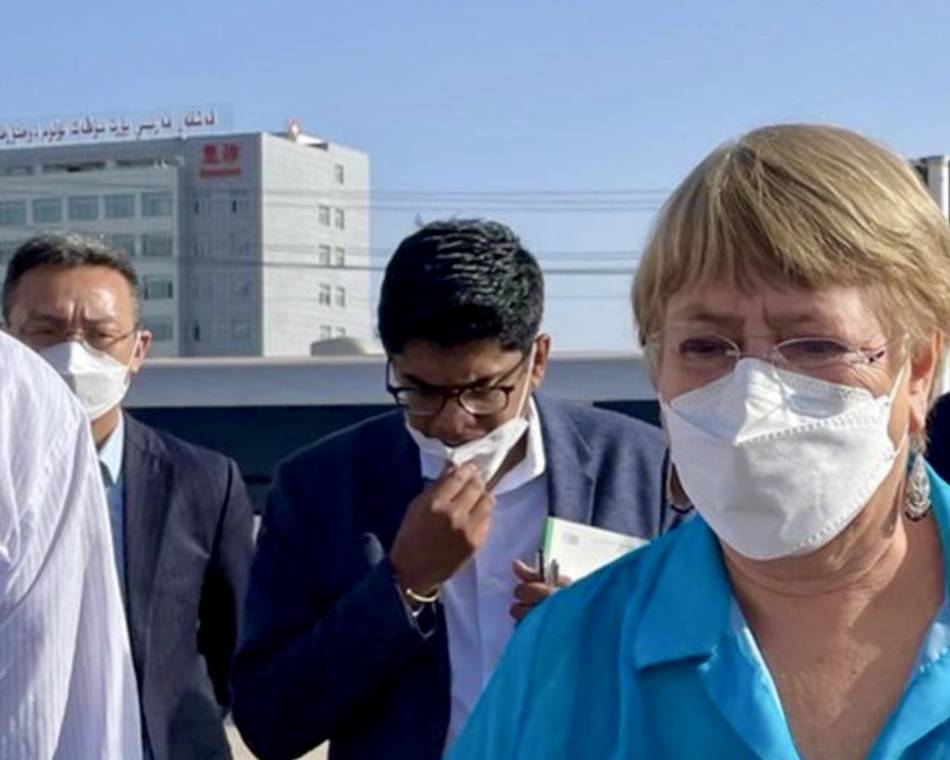GENEVA (AN) — The United Nations’ top human rights official acknowledged she could not obtain enough information during a six-day visit in China to completely assess its system of so-called education and training centers where millions of Muslim Uyghurs are forcibly held and put to work in remote Xinjiang Province.
Michelle Bachelet, speaking to a video conference on Saturday from the southern Chinese port city of Guangzhou, said she met with top Chinese officials, including a virtual meeting with President Xi Jinping, and paid visits to a prison and "experimental school," formerly known as a Vocational Education and Training Center, or VETC, in the ancient Silk Road city of Kashgar.









